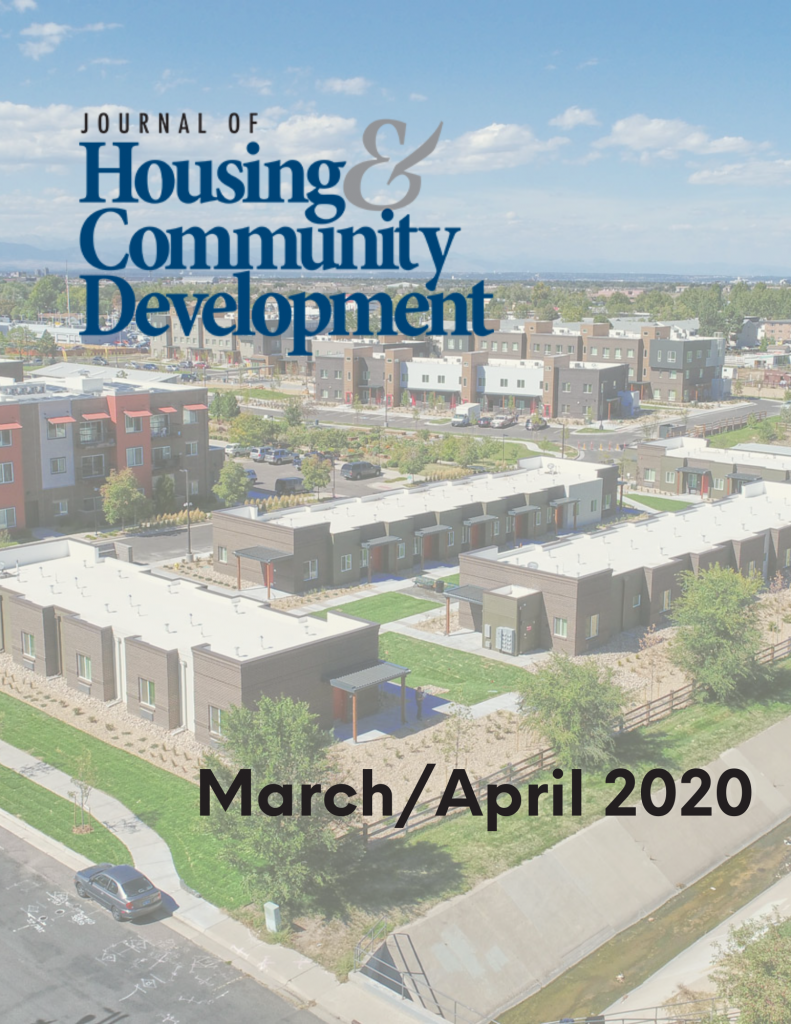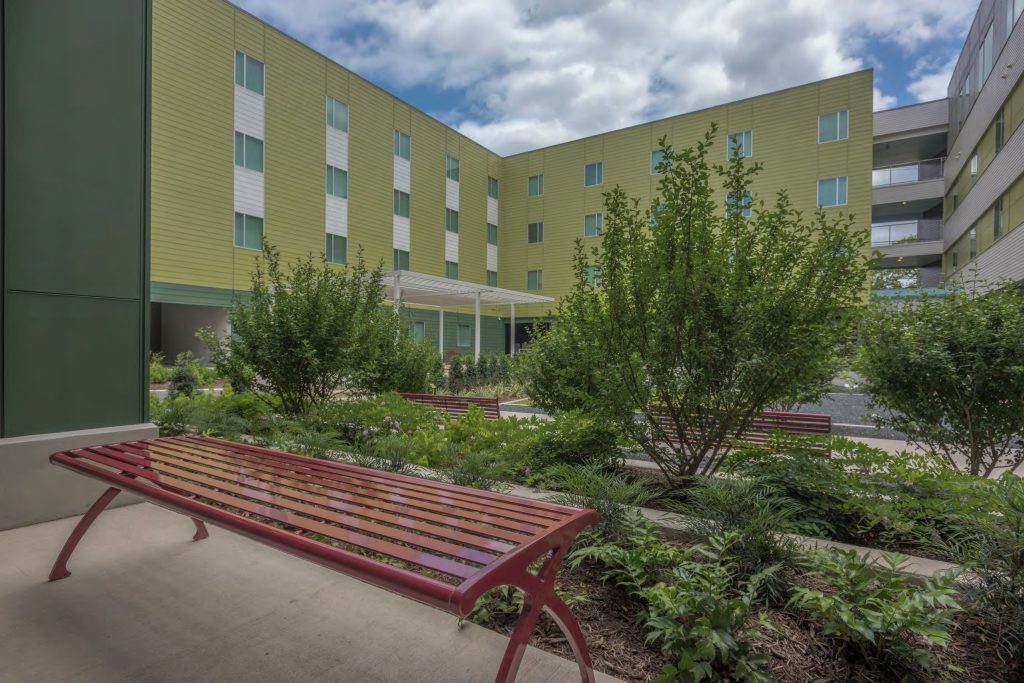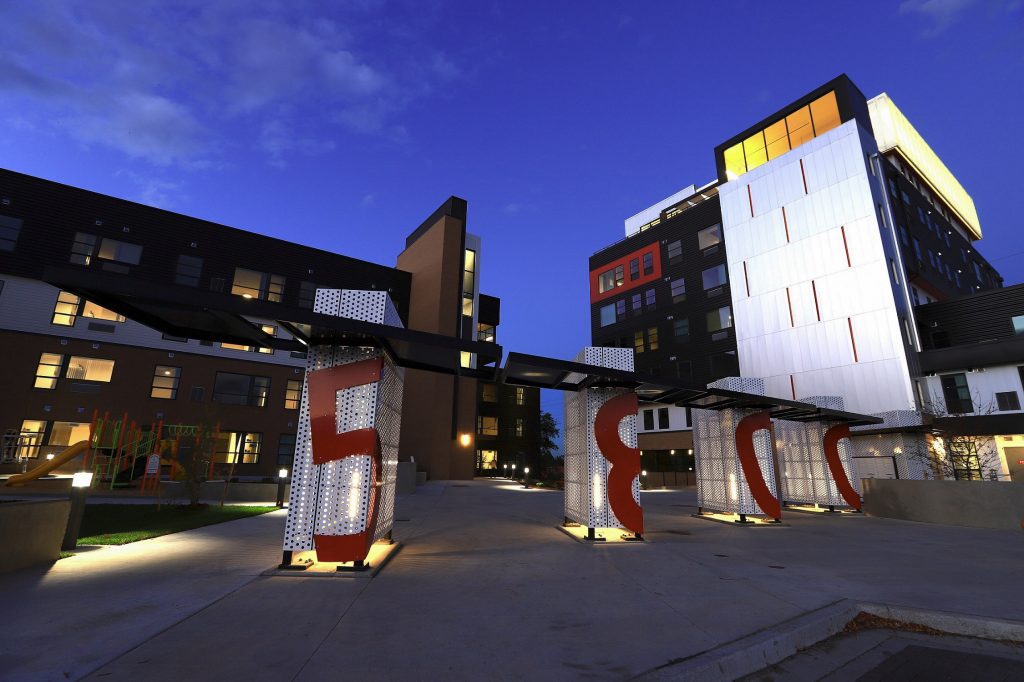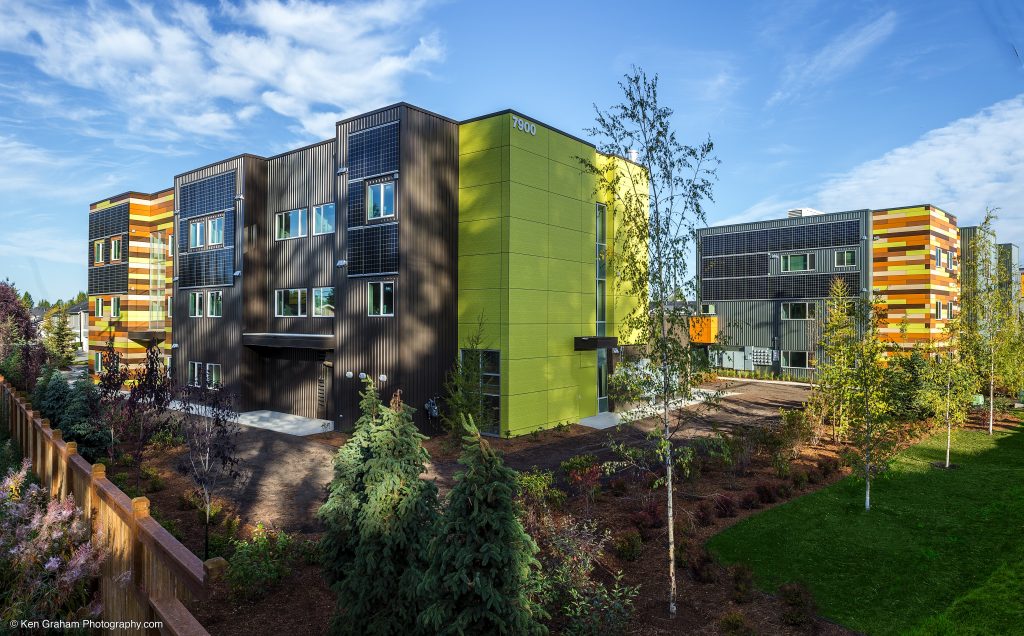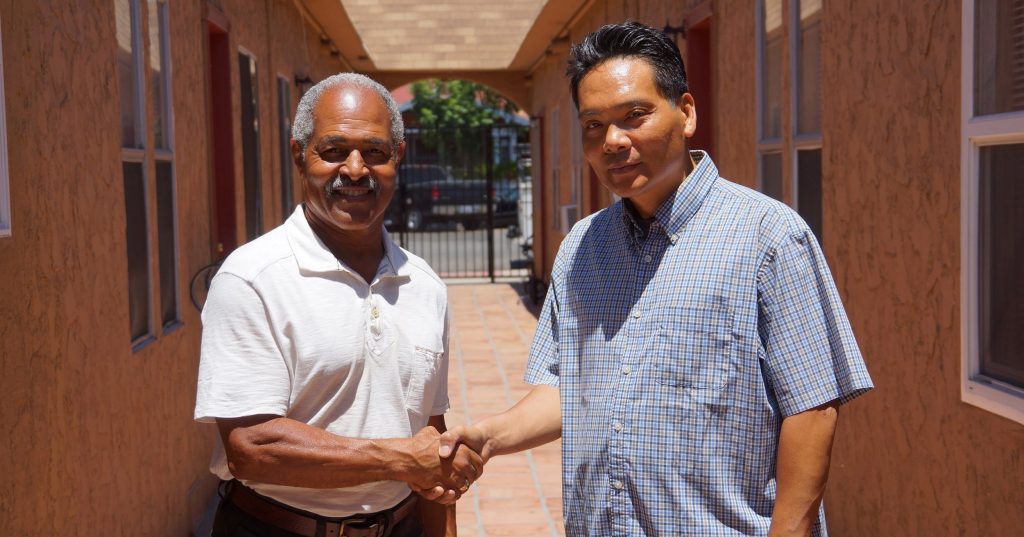Sometimes a Tweet Is All It Takes: An Interview With Casey Pennington

The February 25 Democratic debate in South Carolina marked the first time that a question directly referencing affordable housing was asked in recent election cycles. Graduate student Casey Pennington, who asked the question on Twitter, was “completely shocked, then amazed and then terrified,” but also “grateful this question was chosen.”
“Educational equity and affordable/sustainable housing are intimately linked,” she explained, “but too often policymakers respond to them separately. It’s a question that communities are actively grappling with, and the work needs attention – national attention.”
What inspired you to ask that question on Twitter for the #Demdebate?
Meet me at the bottom, don’t lag behind
Bring me my boots and shoes
You can hang back or fight your best on the frontline
Sing a little bit of these workingman’s blues
Bob Dylan, Working Man Blues #2
First and foremost, I want to thank you for reaching out to me via Twitter; I am so grateful for the opportunity to talk about the layered complexities of affordable/sustainable housing intertwined with educational equity. I start with Dylans’ Working Man Blues #2 because my Mom, Marcy Pennington, thematically employed this song in her School-to-Career class wherein students worked with community business partners to develop working relationships for post-secondary education careers. She intimately understood the need to be on the front lines of the educational and economic equity landscape. Every morning she put on her shoes, stepped out to work with community partners to develop economic opportunities for her students. She is still able to do this work, posthumously, through her scholarship #Lovelikemarcy which supports graduating seniors who are either going directly in the workforce or two-year colleges. I share all of this because my inspiration for asking the question is layered. My inspiration is rooted in my Mom’s advocacy, my personal experience, and our community action research project. Currently, I am a PhD student in the School of Education at Indiana University-Bloomington in the Literacy, Culture, and Language Education department. However, my life before school was touched by a series of homelessness, and a struggle to attain affordable housing.
As a former theatre company owner, based in Los Angeles, who moved back to Indiana in 2009 to begin a teaching career in 6-12 ELA/ESL and Business, I personally navigate the complexities of affordable housing and educational equity. As a theatre owner who attended community college (shout out to Santa Monica College!) part-time, worked a full-time waitressing job, a part-time job as a swim instructor, while operating a theatre company housed in a Brazilian Night Club, I learned quickly that affordable housing is layered and complicated. During this time, I had bouts of homelessness, even though I was working both a full-time and a part-time job. I share this because too often minimum wage workers are bombarded neoliberalist rhetoric stating that we just need to get “better” jobs. We hear this all the time, “just get a better job; just get more education.” When in reality these answers (1) aren’t helpful; (2) don’t attend to structurally ingrained practices that are part and parcel of property ownership and education. These bouts of homelessness were my impetus to get my undergraduate degree in Secondary Teacher Education. I wanted a life where I could be productive, responsive, and independent. The reality was much harsher than my dreams anticipated. While I was teaching full-time, I needed several part-time jobs to just make my $500.00 rent since I was paying roughly $500.00 a month in student loans. So here I am: I left my teaching career for something “better,” and I am a PhD student at a large R-1 institution wherein I make, yet again, minimum wage. My spouse and I often are scraping by to pay our rent and other household expenses. We have moved every year since 2015, since we are gauged with rising prices as new apartment buildings, and gentrified homes are being placed on the market at sky-high prices. We are continuously displaced.
The thing is, we know we are not alone. This story is not just my story. This experience acts as a mirror, but all of our stories are layered, complicated, and varied depending upon our positionalities. In thinking of that, my Mom is the reason why I am here doing this work, and why I am part of a collective asking this question. She was a former public high school teacher, and college professor. She taught for 50–that’s right!–50 years. She unexpectedly passed away this January, but her fierce commitment to educational equity is something that she ingrained into my being. This became intensified with my experiences around a lack of access to affordable and sustainable housing. Furthermore, Brene Brown, a PhD in Social Work, emphasizes the concept that we are hard-wired for connection. Thinking with her, I posit that we are hard-wired to be in communion with others. My inspiration for pushing “send” on this question is for opportunities–like this–to be in communion with others as we navigate, listen, act, and push forward just and equitable housing and educational work with and across a multitude of community partners.
What is going on in your community that inspired your interest in affordable housing issues?
I’m working with a team to interview parents in a low-income school zone in my town. When I talk to parents, especially in public housing, I can see right away how their concerns about school equity for their kids is directly connected with housing options. They can’t be separated. People don’t often realize that. Our community action research project engages with community members and partners to examine school district maps as a way to address inequities, and to push forward change with community partners. The maps provided by our communities’ school district are decontextualized, meaning that the maps only display their school district catchment zone. Parents and community members do not get to see the whole picture where children are pulled from for local schools. In working with community members and partners, we found that they were shocked to realize that the highest concentration of poverty, housing vouchers and public housing were clustered on the city’s west side. The ways in which children are pulled from each school district – for instance, 86% free/reduced lunch at one school, and 6% free/reduced lunch at another school in the same district, only 3 miles apart- illuminate clusters of low/high economic status, including renting and owning homes. The city has the majority of homeownership on the east side of town wherein one elementary school is nationally ranked as a high performing school. Whereas the west side of town, primarily clustered rental homes either from vouchers or in the housing projects, their school is ranked as failing. Therefore, we—and our community partners—acknowledge that when addressing affordable and sustainable housing, we have to address educational equity. They are not separated.
How’d you feel when your question was asked?
Honestly, I was completely shocked, then amazed and then terrified. Here’s my name on national television, with a question we have been collectively grappling within our community, and I felt exposed. I felt as if, who am I to ask this question, and to take up this space? I liken it to my revolving door of imposter syndrome in academia. I can navigate it better in that space, but when it became a question on the national stage, I was nervous. However, thinking back on it I’m grateful that this question was chosen. Educational equity and affordable/ sustainable housing are intimately linked, but too often policymakers respond to them separately. It’s a question that communities are actively grappling with, and the work needs attention—national attention. Too often well-meaning white folks want to work towards educational equity, only as long as it doesn’t include housing diversity. This is a gaping hole in the consciousness of this work, and it has to be addressed, particularly since the Democratic Presidential field is white. If we are to make moves forward, then we have to wrestle with the ways in which our housing and educational choices are enmeshed with one another, but also with race. All of this to say, my question being posed on national television made me feel exposed, scared, but hopeful. I’m hopeful that our work, your work, and the collective work of communities across the United States and in US territories produce new housing and educational equity realities, particularly in the face of climate change. But we have to do this with one another; we never accomplish anything alone.
What advice would you give affordable housing advocates?
If I were to give advice to housing advocates, I’d first start with, I am an educational equity researcher/advocate who, only recently, realized that that educational and housing equity are interlocked. So, from my position, I encourage everyone to talk with your community’s students, teachers, school board members, families, community researchers, and university-based researchers. Additionally, these conversations must include property developers, owners, and managers; however, there’s a caveat, and it’s our collective responsibility to push against their capitalistic edges. Affordable housing and educational equity touch our lives in deeply personal, and nuanced, ways. Therefore, we cannot silo ourselves; we all have different paths as to how to make effective, sustainable, and justice-oriented changes in the lives of our community members. But in order to do this, we need to talk with, and across, our communities. We need to be, and stay, in communion with one another. Again, thank you for this opportunity.
More Articles in this Issue
Pairing Housing and Public Transit: Developing a Community With Mobility in Mind
New Hope Housing wins a 2019 Award of Excellence in Affordable Housing for developing its first mixed-use…How Public Housing Authorities Are Supporting Vulnerable Residents During COVID-19
The Coronavirus Aid, Relief, and Economic Security (CARES) Act, passed on March 27, authorized approximately $12…From Office Building to Home
Metro West Housing Solutions wins a 2019 Award of Excellence in Affordable Housing for the…Creating an Intergenerational, Affordable Town Center
The Cook Inlet Housing Authority (CIHA) wins a 2019 Award of Excellence in Affordable Housing…Award of Excellence: Housing Our Heroes
The San Diego Housing Commission (SDHC) wins a 2018 Award of Excellence in Affordable Housing for creating…
